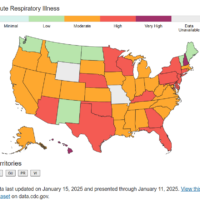Efforts to update COVID-19 vaccines are struggling to keep up with mutations in the novel coronavirus, raising the question of whether updated vaccines will be outdated by the time they become available this fall, Caitlin Owens reports for Axios.
This challenge comes as clinical trials are studying new versions of the Pfizer and Moderna vaccines and the crunch for the U.S. Food and Drug Administration to decide whether to allow them to be recommended later this year, Owens notes.
Moderna announced June 8 that preliminary data shows that its new booster vaccine has demonstrated superior antibody response against the Omicron variant, making it their lead candidate for a booster in the fall. The FDA has set a meeting in late June to evaluate data from clinical trials, PBSNewsHour reports.
Vaccine makers face many challenges in keeping up with recent mutations that appear to be more immune-resistant than the original Omicron variant, Owens writes, citing a study that found the latest Omicron subvariants are more likely to evade the immunity gained from being infected by Omicron.
Another challenge, Owens reports, is that the virus keeps changing in the time it takes to collect data on a new vaccine’s effectiveness and mass-produce it.
Right now, “Three doses of the existing vaccines are still very good at preventing severe disease and death, despite the drop in effectiveness against infection,” Owens reports. However, “If a more dangerous variant that requires new vaccines emerges, the current situation suggests that very tough choices will have to be made.”





